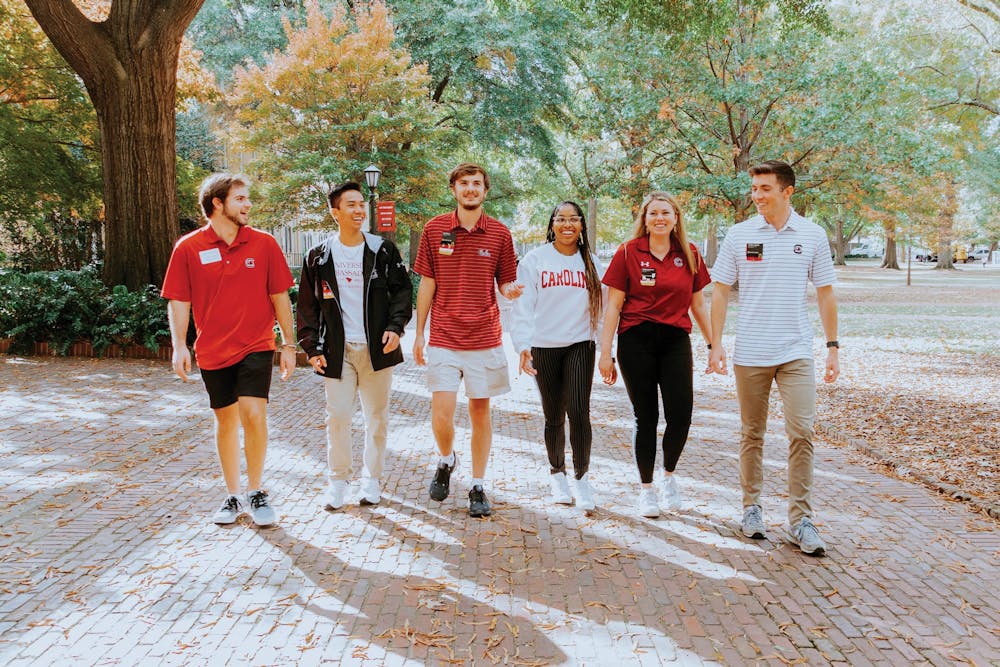While working on campus as a student at USC can be good for those who are passionate about their work, the university doesn't pay its student workers enough and expects too much from RMs and TAs.
USC has plenty of jobs available to students in need of work: From being a Resident Mentor (RM) and helping first-year students navigate their first experiences at college, to working as a Teaching Assistant (TA) and teaching students in need of academic help, there are many things that might interest all different kinds of students.
Working as a student can also be very convenient, especially for first-year students with on-campus jobs since they don't have to travel far to work. But despite the benefits, there are a lot of drawbacks. The number one issue is salary. The university can improve the state of its on-campus jobs by thinking more of its students in terms of pay and creating a working environment that is not overwhelming and stressful.
Working during the school year is a necessity for some college students. Especially with increasing tuition and all the fees, a student has throughout the semester, like textbooks and general living expenses.
The university pay rate for students is lacking. A fourth-year psychology major, former resident mentor, who asked to remain anonymous says the compensation does not represent the work they do.
This reaches across all fields of the university. Maclane Hull, a graduate assistant and teaching assistant in the history department, was up-front with his lack of pay.
"I'll be honest with what I make, I get paid $15,000, I think $15,500 for two semesters of work; which means we're not paid over the summer, we're not paid during winter break. We have to find additional work," Hull said.
Another problem that Hull brought up is that the students who need this job cannot survive off these wages. They aren't getting enough hours since hours are limited for student workers.
Hull, who is also a steering committee member for The United Campus Workers (UCW), said the group's current campaign is on wages. UCW's goal is to help provide a voice for higher education workers.
"We're trying to get a $15 minimum wage established and rise graduate student stipends by 15 percent," Hull said.
Along with the lack of pay, there is often an overload of work for many workers, especially in the RM department. Anonymous former RM, who took her job very seriously, said she was overworked.
"I feel like that it was a pretty full workload ... I would have students who needed me on nights that I wasn't on duty, and you know they needed me, and they were like a borderline crisis. So I would be up talking to them until midnight."
Fourth-year finance and economics student and former RM, Terra Ryder, said she had a similar experience.
"For housing as an RM, it was overwhelming. Like, I had 40 students, freshman as well as some students who had learning disabilities, and so I was having to take care of them every day, be an RM on duty every week, sit at desks for a building that wasn't even my own," Ryder said.
Campus jobs are not for everyone, it is a lot of work and they are hard. For RM's, you could be up all hours of the night helping a student in need. For TA's, you're working well over the amount of time you're supposed to be working with class discussions, grading papers and even things like writing tests, according to Hull.
Before you consider seeking a job on-campus, make sure you know what you will get paid and what your expectations are so you can evaluate if the job is a good fit for you. Fourth-year biology major and University Ambassador Simran Paintlia said you have to have the passion to work a job on campus, because it's not easy.
"I would recommend this position for someone that is passionate about the University of South Carolina and willing to spend a good amount of time being a University Ambassador, because it does come with a lot of responsibilities," Paintlia said.
The UCW is hard at work, fighting for the pay rise and helping upper education campus workers find their voice. Read more about UCW and join the fight for a higher minimum wage.

